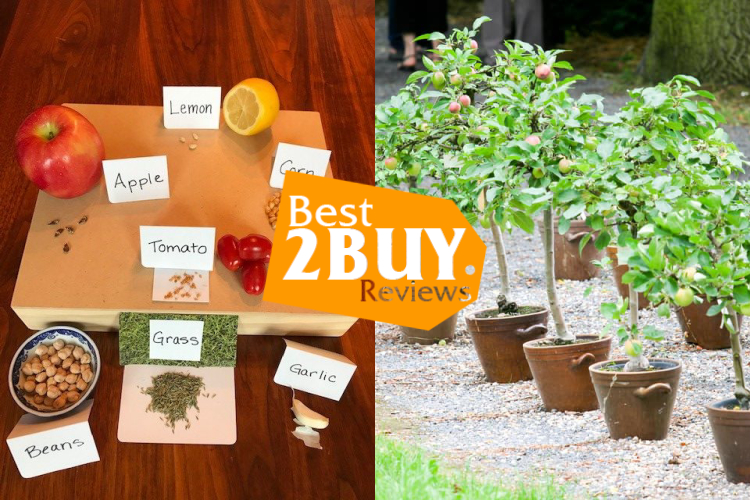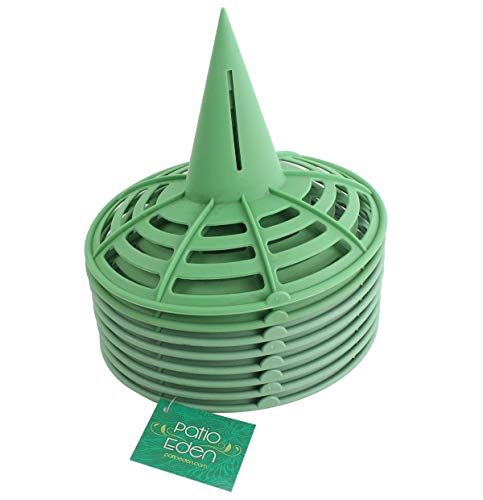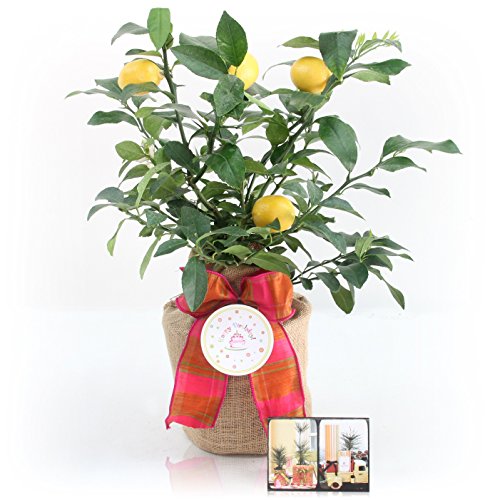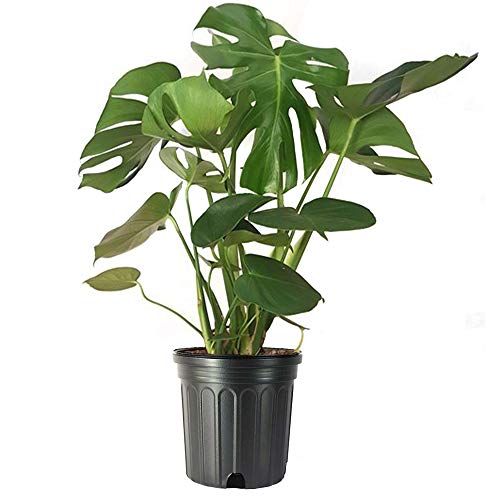How to Choose the Fruit Plants & Seeds
How to Choose Fruit Plants And Seeds for Your Home Garden

Growing your own fruit can be a rewarding and enjoyable experience. Whether you have a large garden or a small balcony, selecting the right fruit plants and seeds is crucial for a successful harvest. With so many options available, it can be overwhelming to know where to start. This article will guide you through the process of choosing fruit plants and seeds, ensuring that you make informed decisions and set yourself up for a fruitful endeavor.
How to Choose Fruit Plants
What to Consider When Choosing Fruit Plants
Not every fruit tree thrives under all conditions, so before you visit the nursery, it's essential to consider your home garden and its specific characteristics:
- Space: Some people mistakenly believe they can't grow fruit in smaller gardens, but this is not true. Besides compact fruit shrubs and vines like raspberries, strawberries, and melons, there are also dwarf versions of nearly every fruit tree variety, such as cherries, peaches, and lemons, which require less space.
- Sunlight: Most fruits require full sun to develop sugars, resulting in sweeter fruit. If your garden enjoys ample sunlight, you're in good shape. However, if your space is partially shaded, don't despair. Sour cherries, raspberries, blackberries, and certain types of plums and strawberries can thrive in partial shade.
- Temperature: Different fruits have varying temperature preferences, so when selecting varieties, ensure they can withstand your garden's winter conditions. Some fruit varieties, including apple cultivars, crab apples, sour cherries, plums, pears, raspberries, and blackberries, are cold-resistant. For extremely cold winter areas (below 0 degrees Fahrenheit), you can still grow fruit by opting for dwarf trees and cultivating them in indoor pots.
- Soil: Fruit trees and shrubs dislike having their roots constantly in wet soil. To keep them healthy and free from rot, plant them in well-draining soil, whether in the ground or pots. While most fruits do well in standard mulch, certain plants, like blueberries, require more acidic soil, so plan accordingly.
- Pollination: Pollination is vital for fruit production, and the methods differ among various fruit types and even within the same fruit species. When selecting fruit varieties, look for those labeled as "self-pollinating," "self-fruiting," or "self-fertile," as they don't require another tree or shrub for fruit production. Most fruit types offer a few self-pollinating varieties. If you choose plants that don't self-pollinate, ensure you purchase at least two of each type to ensure cross-pollination and fruit production.
Recommended Fruit Plants for Beginners in Home Gardens
If you're keen on cultivating your own fruit in a home garden, here is a selection of fruit plants that are well-suited for beginners:
- Raspberries and blackberries, collectively known as "brambles," are robust and require minimal care, mainly occasional pruning to maintain their productivity. Some newer thorn-free varieties are available for those concerned about thorns.
- Strawberries are one of the easiest fruits to grow, needing only a small space and minimal watering. They can be planted directly in your vegetable garden or in pots in sunny areas. While they can endure cold winters, replenishing the beds with new strawberry plants every couple of summers can ensure a continuous harvest.
- Plum trees are hardy and typically yield bountiful crops every other year. Most plum varieties require cross-pollination, so consider planting at least two trees for a successful harvest.
- Cherries, whether sweet or sour, are low-maintenance small fruit trees that require little to no pruning and exhibit excellent resistance to pests and diseases.
- Apples are among the most resilient fruit trees, grown extensively across the United States. Many apple varieties can withstand harsh winters, though they are susceptible to pests and diseases more than some other fruits.
- Peach trees are naturally compact, making them a suitable choice for those with limited space. A bit of pruning and thinning is necessary to ensure optimal harvests.
- Apricot trees are sun-loving, low-maintenance fruit trees. Keep in mind that they usually don't bear fruit in their first year after planting, so exercise patience.
- Pears are cold-hardy fruit trees, and dwarf varieties are readily available for gardeners with space constraints.
- Grapes are vine fruits that can be trained to grow on trellises or wire supports. It's important to protect the grapes from birds during the harvest season.
- Figs are extremely low-maintenance and produce fruit throughout the year. While standard varieties are sensitive to frost, there are newer, cold-hardy varieties that can even be grown in pots and moved indoors during the winter.
Tips for Successful Fruit Cultivation in Your Garden
Timing is Crucial
To ensure the resilience of your fruit plants throughout the winter, it's essential to plant them at the right time. If you acquire "bare-root plants," which are dormant plants with roots packed in damp shavings (common with mail-order fruits), it's best to plant them in early spring to allow for a full growing season before winter sets in. For non-dormant shrubs or container-grown trees (typically found at local nurseries), the timing is more flexible, but avoid waiting until late summer.
Nurture Pollinators
Pollinators, such as bees, play a pivotal role in any garden by facilitating pollen transfer between plants, ultimately leading to fruit production. Avoid using pesticides during the blossoming phase of your trees, as this can harm and deter pollinators, potentially preventing fruit formation. If you're grappling with pests, explore non-chemical methods of pest control to support a thriving bee population.
Space-Saving Strategies
Especially if your garden has limited space, consider employing space-saving techniques to maximize your tree fruit harvest.
- Fan-Training (Espalier): This popular method involves planting trees close to a wall and training their branches to spread out against it. Regular pruning is used to "train" the tree to grow closely against the wall, optimizing space.
- Cordons: Another space-efficient approach is to grow fruit trees as cordons. Plant the tree with a tall bamboo stake and prune the branches so that the tree grows as a single tall stem instead of a sprawling mass of branches.
- Dwarf Fruit Trees: If space is extremely limited, opt for dwarf fruit trees that can be cultivated outdoors or even indoors in pots, allowing you to enjoy fruit production in confined areas.
How to Choose the Best Garden Seeds
Choosing the best garden seeds is crucial for a successful and bountiful garden. The right seeds will depend on various factors such as your climate, soil type, garden size, and personal preferences. Here's a step-by-step guide to help you choose the best garden seeds:
- Determine Your Hardiness Zone: Find out your USDA hardiness zone or local climate zone. This information will help you select plants that are well-suited to your region's temperature and weather conditions.
- Assess Your Garden Space: Measure the available space in your garden, including the amount of sunlight it receives each day. Some plants require full sun, while others thrive in partial shade or full shade. Make sure your garden's conditions match the requirements of the seeds you choose.
- Soil Testing: Conduct a soil test to determine the pH level and nutrient content of your soil. This will help you select plants that are compatible with your soil type. You can adjust your soil's pH and nutrient levels if necessary.
- Identify Your Garden Goals: Consider your gardening goals and preferences. Do you want to grow vegetables, flowers, herbs, or a combination of these? Determine whether you want annuals (plants that complete their life cycle in one year), biennials (plants that take two years to complete their life cycle), or perennials (plants that come back year after year) in your garden.
- Research Plant Varieties: Research different plant varieties within the category you're interested in (e.g., tomatoes, roses, or basil). Look for qualities such as disease resistance, flavor, bloom time, and size. Reading seed catalogs, gardening books, and online resources can provide valuable information.
- Consider Companion Planting: Explore companion planting techniques to maximize the health and productivity of your garden. Some plants thrive when planted alongside certain companions, while others should be kept apart to prevent pest or disease problems.
- Choose Non-GMO and Organic Seeds: If you prefer to avoid genetically modified organisms (GMOs) and chemicals in your garden, look for non-GMO and organic seed options. These seeds are produced without synthetic pesticides or fertilizers.
- Read Seed Packets: Carefully read the information on seed packets. Pay attention to details such as planting depth, spacing, and recommended planting times. This information is crucial for successful germination and growth.
- Buy Quality Seeds: Purchase seeds from reputable suppliers or nurseries. Quality seeds are more likely to produce healthy and robust plants. Check for expiration dates on seed packets and opt for fresh seeds when possible.
- Start with Favorites: If you're new to gardening, consider starting with a few of your favorite plants or varieties that are known to be easy to grow. As you gain experience, you can experiment with more diverse selections.
- Consider Saving Seeds: If you're interested in sustainability and saving money, learn how to save seeds from your garden's best-performing plants. This allows you to develop your unique seed collection over time.
- Plan for Succession Planting: Plan your garden for succession planting by selecting seeds with staggered harvest times. This ensures a continuous supply of fresh produce throughout the growing season.
Conclusion
Selecting the appropriate fruit plants and seeds is paramount to ensure a thriving and pleasurable gardening venture. To make well-informed choices, it's crucial to take into account your local climate and growing conditions, conduct thorough research on various fruit varieties, procure your supplies from trustworthy sources, and contemplate the merits of organic and heirloom options. Moreover, strategizing for successive plantings and embracing diversity in your garden will enable you to optimize your yield while minimizing potential challenges. By meticulously choosing and tending to your fruit-bearing plants, you'll soon savor the rewards of your hard work.










